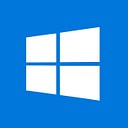7 Secret Tips to Supercharge Your Windows 11 Computer Speed
If you’re a Windows 11 user looking to enhance your computing experience, you’ve come to the right place.
In the fast-paced world of technology, a sluggish computer can be a major roadblock to productivity and enjoyment. If you’re a Windows 11 user looking to enhance your computing experience, you’re in the right place. In this article, we’ll delve into seven secret tips that can help you speed up Windows 11 computer, ensuring a smoother and more efficient operation.
Optimize Startup Programs
One of the common reasons for a slow boot time is the unnecessary load of startup programs. Windows 11 allows you to manage these applications easily. Head to the Task Manager (Ctrl + Shift + Esc), navigate to the “Startup” tab, and disable programs that you don’t need to launch at startup. This simple tweak can significantly reduce the time it takes for your computer to become fully operational.
Keep Your System Updated
Regular updates from Microsoft not only bring new features but also include important performance enhancements and security patches. Make sure your Windows 11 operating system is up to date by checking for updates in the Settings menu. A well-maintained system is more likely to run efficiently and smoothly.
Additionally, updating device drivers can further enhance your system’s stability and speed.
Optimize Storage Space
A cluttered hard drive can slow down your computer’s performance. Take the time to declutter by uninstalling unnecessary programs and deleting files you no longer need. Additionally, use the built-in Storage Sense feature in Windows 11 to automatically free up space by removing temporary files and cleaning up the recycle bin.
Disable Visual Effects
Windows 11 comes with visually appealing effects, but they can contribute to a slower system, especially on older hardware. Adjusting these settings can result in a noticeable performance boost. Navigate to the System Properties, click on the “Advanced” tab, and under the “Performance” section, choose “Adjust for best performance” or manually select the visual effects you want to keep.
Increase Virtual Memory
Improve memory management by increasing virtual memory. Right-click on the Start button, select “System,” go to the “Advanced system settings,” and click on the “Settings” button under the Performance section. In the Advanced tab, click “Change” under Virtual Memory, uncheck “Automatically manage paging file size for all drives,” and set a custom size based on your system’s specifications.
Perform Regular Maintenance
Routine maintenance tasks can prevent performance issues in the long run. Use the built-in Windows 11 tools such as Disk Cleanup and Disk Defragmenter to optimize your hard drive. Regularly check for and fix disk errors using the Error Checking tool. These practices will contribute to a healthier and faster Windows 11 system.
Check for Malware and Viruses
Perform regular scans for malware and viruses using a reliable antivirus or anti-malware software. Malicious software can not only compromise your system’s security but also negatively impact its performance.
If web browsing is a significant part of your computer usage, optimize your browser settings and consider using extensions or add-ons that enhance performance. Additionally, keep your browser up to date to benefit from the latest performance improvements.
If your computer’s performance is still not meeting your expectations, consider upgrading hardware components such as RAM or storage. Increasing RAM can lead to better multitasking capabilities while upgrading to a faster SSD can significantly improve overall system responsiveness.
Remember that consistent maintenance, optimization, and staying updated are key elements in keeping your system in top shape.
